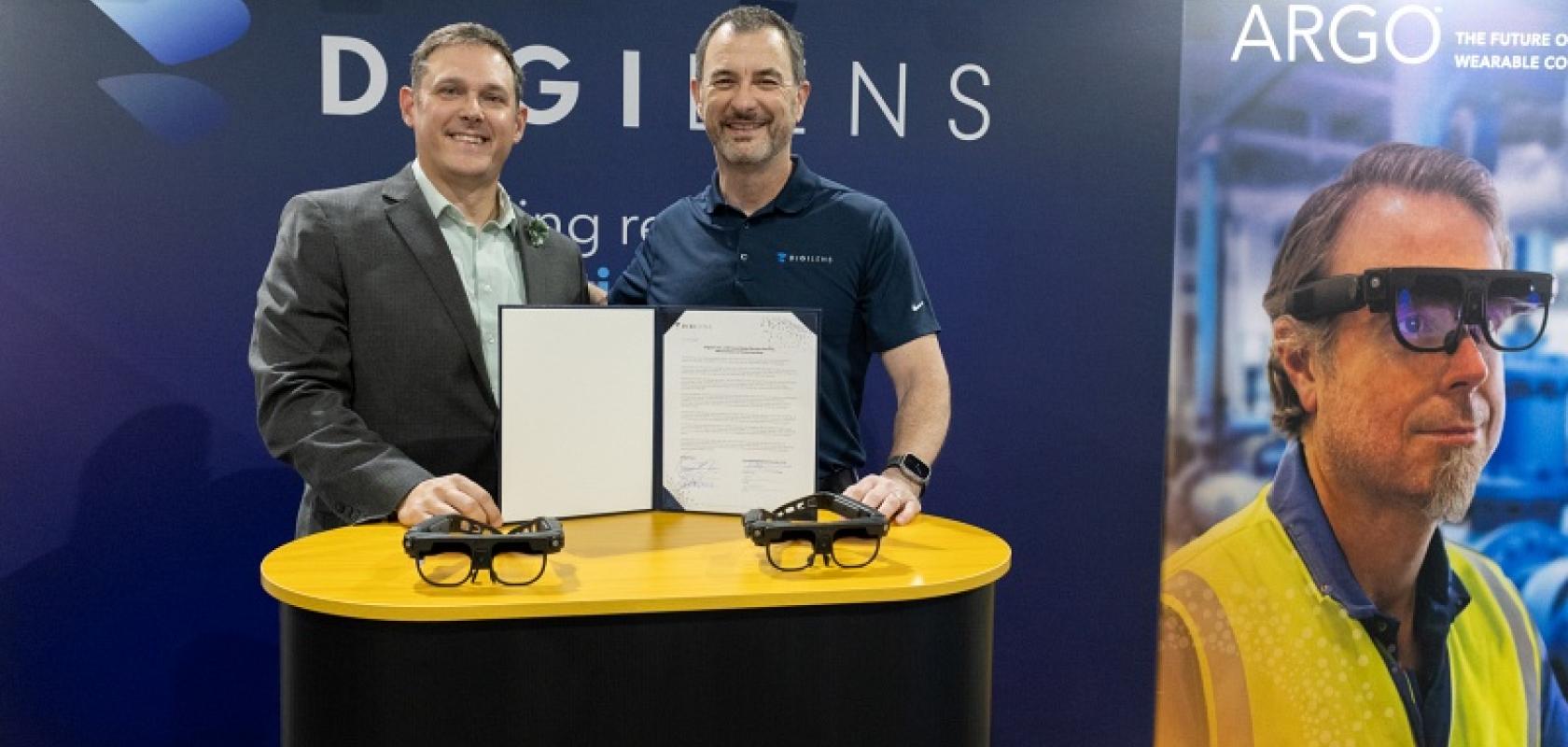Extended reality developers Kopin and DigiLens win contracts with the US Army and Nuclear Security consortium respectively to deliver next-gen ‘true’ AR wearables.
Advancing augmented, virtual and mixed reality (AR/VR/MR) technologies are set to revolutionise many industries and sectors, with enhanced immersion and visual data presentation and integration especially groundbreaking when used for training, manufacturing and emergency response purposes.
Now firms who specialise in the manufacture of wearable tactical equipment are working with government contractors to create applications that utilise the technology.
DigiLens partners on Nuclear Security
Looking to integrate wearable computers into smart glasses with heads-up display (HUD) capabilities, DigiLens has signed a memorandum of understanding with the Consolidated Nuclear Security (CNS) consortium to manufacture waveguides and displays through its International Traffic in Arms Regulations (ITAR) licence, including custom AR devices in tactical protective equipment.
“We believe the lightweight size and functionality compared to the [current] bulkier headsets will help [the] adoption of AR,” said Ashley Stowe, director of the Oak Ridge Enhanced Technology and Training Center (ORETTC). “Because of their US-based, high-yield waveguide manufacturing process, they are a viable long-term partner for work in secure environments.”
It’s thanks to DigiLens’ patented optical platform and photopolymer technology that gives the Californian firm its expertise in holographic waveguides, announcing recently that, due to the increase in demand and the production of DigiLens’ ARGO smart glasses, manufacturing partner Crystal-Optech has had to upgrade its waveguide manufacturing line.
DigiLens’ ARGO glasses a real solution for ‘true’ AR
DigiLens’ “patented waveguide technology is the only one with an advanced, adaptable and scalable manufacturing process with a high yield, low development cost and small footprint,” said the firm.
Described by DigiLens as the first purpose-built standalone smart glasses device with XR, ARGO fits many US government requirements for a ‘true’ AR solution – such as modularity and high display transparency – to improve the wearer’s situational awareness, and is built to military specifications with DigiLens’ Crystal30 waveguide.
Kopin develops XR optics for the US Army
Also winning support in the US public sector, US-based XR optics and glasses developer Kopin will provide AR display optics for dismounted soldier vision. Under their Small Business Innovation Research (SMIR) contract, Kopin will target improved optical performance for better daylight readability, visual and ergonomic comfort and night-time visibility, alongside its reduced size, weight and power consumption.
“We believe Kopin’s unique ability to develop the necessary optics and also to optimise a specific microdisplay for the application,” said Bill Maffucci, Kopin’s senior VP of business development and strategy, “will allow us to succeed” where others have failed.”
Kopin then hopes the development will lead to the widespread integration of a new range of user-based products such as digitised head-mounted visual information systems, for example, that can operate day or night.


